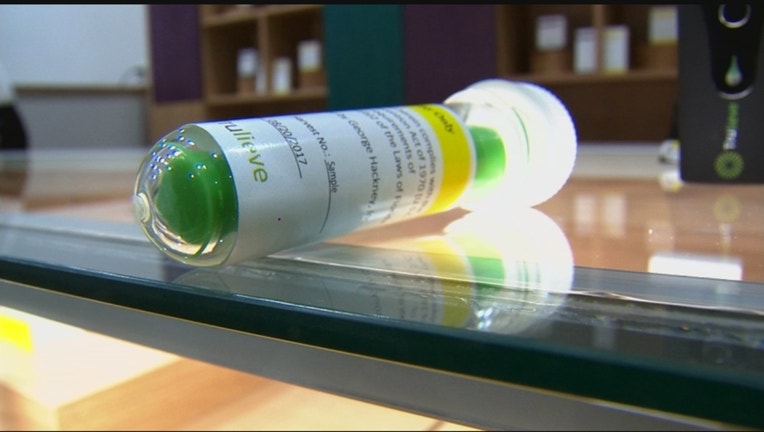Lawsuit targets marijuana firm over text messages

TALLAHASSEE, Fla. - In a federal lawsuit seeking millions of dollars in damages, a Tennessee man is accusing Florida’s largest medical marijuana operator of illegally sending text messages to his cell phone.
The lawsuit alleges that Quincy-based Trulieve Inc. violated federal communications laws by sending unsolicited text messages to Mats Jaslow that advertised special deals on marijuana products in October and November.
The lawsuit does not say whether Jaslow is a patient in Florida or how Trulieve, one of the state’s 22 licensed medical marijuana operators, obtained his cell phone number. A lawyer for Jaslow told The News Service of Florida on Wednesday he could not elaborate on the complaint.
Trulieve also declined to comment.
“We are aware of the complaint and our policy is not to comment on ongoing legal matters,” Trulieve said in a statement when asked about the lawsuit.
Jaslow, who is seeking class-action status in the lawsuit, is asking for $1,500 for each violation of the federal Telephone Consumer Protection Act. The damages, “when aggregated among a proposed class numbering in the tens of thousands, or more,” exceeds a $5 million threshold for federal jurisdiction in class-action lawsuits, the lawsuit said.
The complaint includes screen shots of two text messages sent to Jaslow from phone numbers the lawsuit said are owned and operated by Trulieve.
“Hello Trulievers! Buy 2 Get 1 Free on TruClear today. Stackable with one 10% off discount for Vets, Snap or Trulievers,” said one message, which included a link to Trulieve’s website.
“Happy Flower Friday Trulievers! Roll into the weekend with our restock of prerolls and flower. Doors open at 10 am. Visit www.trulieve.com. Have a great day!” a second message said.
The text messages “constitute telemarketing because they encouraged the future purchase or investment in property, goods, or services, i.e., selling plaintiff cannabis products,” Andrew J. Shamis, of Miami-based Shamis & Gentile, P.A., and Aventura lawyer Scott Edelsberg wrote in the complaint.
Many of the state’s medical marijuana operators communicate with customers by text message to advertise specials on products.
The federal communications act restricts telemarketing calls and the use of automated telephone calls. Rules initiated in 2012 require telemarketers to obtain prior written consent from consumers before initiating robocalls.
But in the complaint filed in the federal Northern District of Florida, Jaslow’s lawyers said he never gave Trulieve written permission to contact him through an automatic telephone dialing system.
The unsolicited messages from Trulieve “caused plaintiff actual harm including invasion of his privacy, annoyance, intrusion on seclusion, trespass and conversion,” Jaslow’s lawyers wrote in the 17-page complaint.
The messages “also inconvenienced plaintiff and caused disruption to his daily life,” the lawsuit alleges.
According to the lawsuit, the messages caused the plaintiff to spend “approximately 10 minutes investigating the unwanted text messages including how they obtained his number and who the defendant was.”
The unwanted messages also took up memory on the plaintiff’s cell phone, posing “a real risk of ultimately rendering the phone unusable for text messaging purposes” and slowing down the phone’s performance, the lawsuit alleges.
In seeking class-action status, Jaslow’s lawyers wrote that Trulieve “has placed automated and/or prerecorded calls to cellular telephone numbers belonging to thousands of consumers throughout the United States without their prior consent,” but the exact number of potential plaintiffs is unknown.
Along with seeking financial damages, Jaslow is asking a federal judge to ban Trulieve from using automatic telephone dialing systems to text messages to cell phones without permission from the person being called. The plaintiff is also asking for a jury trial.

